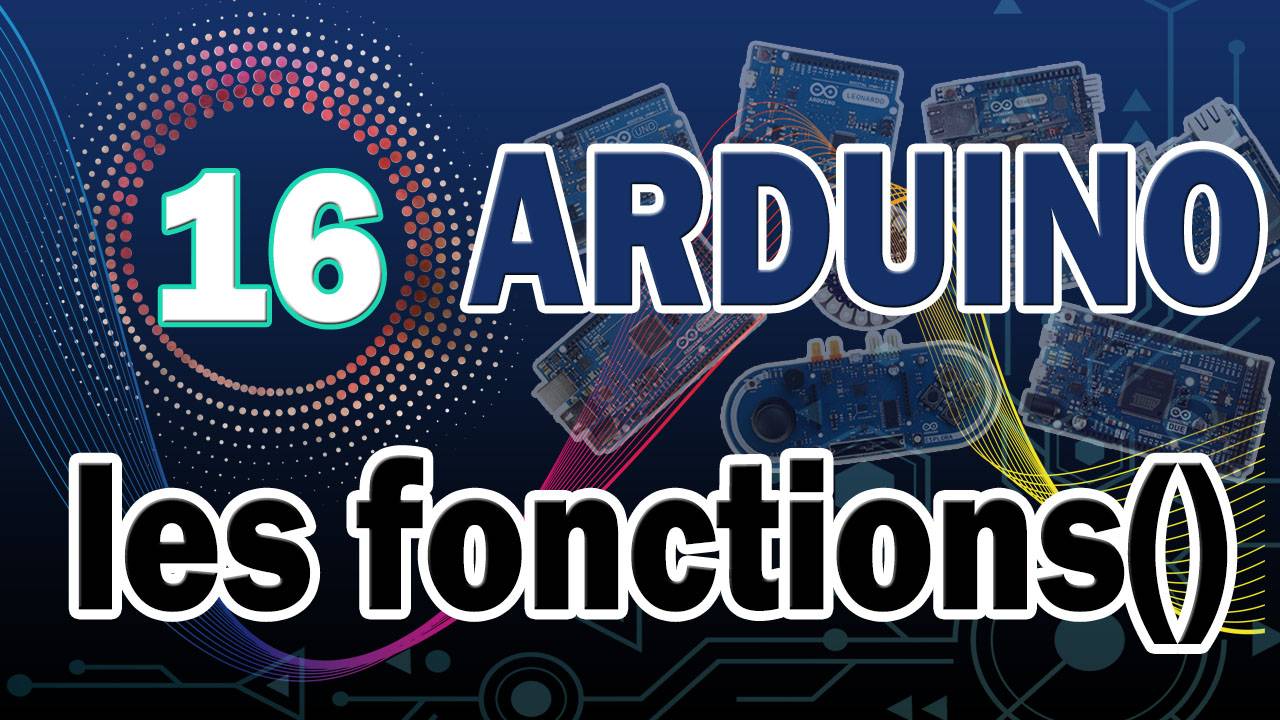Objectifs
- A quoi sert une fonction ?
- Comment définir une fonction ?
- Comment utiliser une fonction ?
- Types des fonctions
- Exemples pratiques
- Etc.
Importance des fonctions
-
- Programmation modulaire
- Sclalable
- Facilité de débogage
- Simplification des taches répétitives
- Réduction de la complexité du code
Fonction sans retour (procédure)
void NomFunc(int a, int b, float c,...)
{
instruction 1;
instruction 2;
instruction 3;
...;
}
Exemple
void Disp2Int(int a, int b)
{
Serial.print("Valeur de a: ");
Serial.println(a);
Serial.print("Valeur de b: ");
Serial.println(b);
Serial.print("\n \n");
}
Fonction avec retour
TypeRetour NomFunc(int a, int b, float c,...)
{
TypeRetour Val;
instruction 1;
instruction 2;
instruction 3;
...;
return Val;
}
Exemple
int Sum2Int(int a, int b)
{
int somme;
somme=a+b;
return somme; // Ou bien
return a+b;
}
Fonction sans retour ni entrées
void NomFunc(void)
{
instruction 1;
instruction 2;
instruction 3;
...;
}
Exemple
void VoidFun(void)
{
Serial.println("Ici C'est sans arguments ni retour");
Serial.println("wwww.electronique-mixte.fr");
// Inst 2;
// Inst 3;
// ...;
}
Appel d’une fonction
int Somme;
int Sum2Int(int a, int b)
{
int somme;
somme=a+b;
return somme; // Ou bien return a+b;
}
void Disp2Int(int a, int b)
{
Serial.print("Valeur de a: ");
Serial.println(a);
Serial.print("Valeur de b: ");
Serial.println(b);
Serial.print("\n");
}
void VoidFun(void)
{
Serial.println("Ici C'est sans arguments ni retour");
Serial.println("wwww.electronique-mixte.fr");
// Inst 2;
// Inst 3;
// ...;
}
void setup() {
// Init port série
Serial.begin (9600);
}
void loop() {
// 1. Appel de la fonction sans retour
/*Disp2Int(10,20);
delay(1000);*/
// 2. Appel de la fonction avec retour
/*Somme= Sum2Int(100, 10);
Disp2Int(Somme,10);
delay(1000); */
// 3. Appel de la fonction sans retour ni antrées
VoidFun();
delay(1000);
}
void NomFunc(void)
{
instruction 1;
instruction 2;
instruction 3;
...;
}
Exemple
void VoidFun(void)
{
Serial.println("Ici C'est sans arguments ni retour");
Serial.println("wwww.electronique-mixte.fr");
// Inst 2;
// Inst 3;
// ...;
}
int Somme;
int Sum2Int(int a, int b)
{
int somme;
somme=a+b;
return somme; // Ou bien return a+b;
}
void Disp2Int(int a, int b)
{
Serial.print("Valeur de a: ");
Serial.println(a);
Serial.print("Valeur de b: ");
Serial.println(b);
Serial.print("\n");
}
void VoidFun(void)
{
Serial.println("Ici C'est sans arguments ni retour");
Serial.println("wwww.electronique-mixte.fr");
// Inst 2;
// Inst 3;
// ...;
}
void setup() {
// Init port série
Serial.begin (9600);
}
void loop() {
// 1. Appel de la fonction sans retour
/*Disp2Int(10,20);
delay(1000);*/
// 2. Appel de la fonction avec retour
/*Somme= Sum2Int(100, 10);
Disp2Int(Somme,10);
delay(1000); */
// 3. Appel de la fonction sans retour ni antrées
VoidFun();
delay(1000);
}

